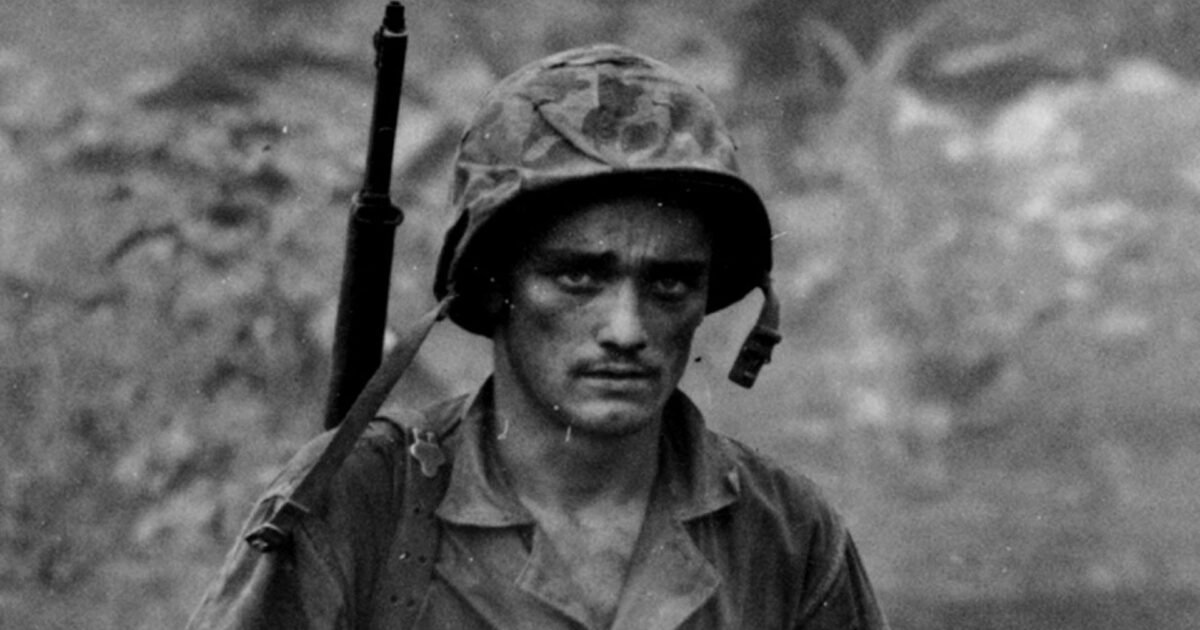Life in the Infantry | The War | Ken Burns

As in many other units, the men in the infantry griped about the food, the conditions and their superiors.
“Lots of our equipment wasn’t very good,” Burnett Miller said. “We always had frozen feet because our shoes were really very, very poor for keeping out [the wet] when you’re in the snow particularly. Also, we went into combat in the Bulge in the same overcoats we went to London in. They were big, bulky miserable things that would get wet and pretty soon we were looking for German prisoners or German dead because they had nice white bunny fur jackets that were just terrific — not only comfortable and warm, but were white and camouflaged. So, that was very good.”
“You had no possessions at all. You would cut everything down to the simplest ‘cause you had to carry everything,” Fussell said. “When we were marching from one horror to another, I had shoepacks on because the ground was always wet or frozen. I had two pairs of woolen socks. In my pockets. I carried probably a couple of boxes of K-rations. I had never had a toothbrush at all. I didn’t take a shower for six months. No change of underwear at all. No change of clothes at all for months. And I had a sleeping bag which I carried with a rope over my shoulder like a tramp. And that’s all I had.”
In the mountains of Italy, the men learned to sleep while marching – it was “a kind of coma,” one remembered – and when they got a chance to lie down, they preferred to sleep on rocks rather than bare ground because rocks were relatively dry. For everyone, keeping dry was of the utmost importance.
“We were in combat for about two weeks, and raining every day,” Robert Kashiwagi said. “And we were soaking wet. And were sleeping in our own soaking wet clothes. And most people received a lot of trench foot because their feet is wet. And they didn’t take care of it. But I knew enough to always carry an extra pair of stockings under my vest and another pair under my helmet. And I would take my shoe off and massage my feet and wash that stocking and change to a warmer pair, and then put the wet pair under my helmet.”
Beyond the physical discomforts, the men in the infantry had to battle impossible odds.
“It seemed that the only escape was to be killed or wounded,” Eugene Sledge wrote in With the Old Breed. “The will for self-preservation weakened. … Getting wounded did seem inevitable. In a rifle company it just seemed to be a matter of time. One couldn’t hope to continue to escape the law of averages forever.”
“There’s no way, whatever, to escape it by technique or care or attitude or fast movement or by athletic skills and so on. You’re just lucky,” Fussell said. “The shell hits somebody who is not yourself.”
ncG1vNJzZmivp6x7sa7SZ6arn1%2Bgsq%2Bu1KulrGeknbJuw8CrZqWhlpp6qrqMrZ%2BeZZmjs6K606uw